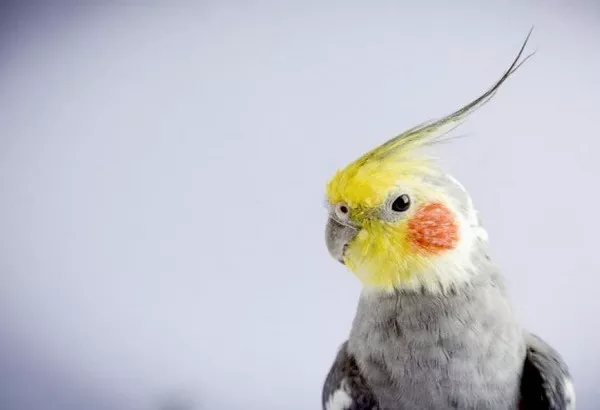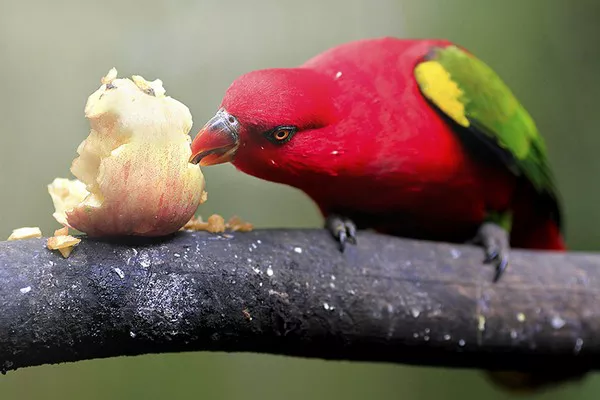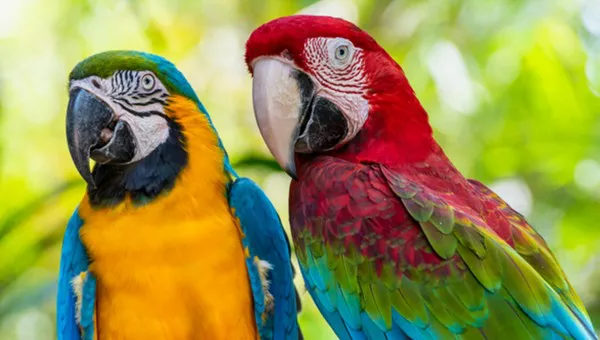Sun conures, with their vibrant colors and charming personalities, are among the most beloved pet birds. Their playful nature and vocalizations make them delightful companions, but one essential aspect of their well-being is often overlooked: sleep. Understanding how sun conures sleep is crucial for any pet owner, as it impacts their health, behavior, and overall happiness. In this article, we’ll delve into the sleeping habits of these stunning birds, explore their natural behaviors, and provide tips on how to create the perfect sleep environment for your feathered friend.
1. The Basics of Sun Conure Sleep
Sun conures, scientifically known as Aratinga solstitialis, are native to the tropical forests of South America. Like many parrots, they are diurnal, meaning they are active during the day and sleep at night. In their natural habitat, sun conures typically roost in the trees at sunset, seeking safety from predators and environmental threats. Understanding these natural behaviors helps pet owners create a suitable sleeping environment for their birds.
Sleep Cycles
Birds, including sun conures, experience sleep cycles similar to mammals, with REM (Rapid Eye Movement) sleep being crucial for their overall health. REM sleep is the phase where dreaming occurs, and it plays an essential role in brain development and emotional well-being. Sun conures usually go through several sleep cycles throughout the night, with each cycle lasting about 90 minutes.
Duration of Sleep
In the wild, sun conures typically sleep for around 10 to 12 hours a night. However, pet conures may sleep less or more depending on their environment, routine, and individual needs. It’s vital to establish a consistent sleep schedule to ensure your conure gets adequate rest.
2. Natural Sleeping Habits
Roosting Behavior
In their natural habitat, sun conures roost high up in trees where they feel safe from predators. This instinctive behavior influences how they should be housed. When setting up a sleep area for your sun conure, it’s essential to provide a high perch or a cozy sleep cage where they can feel secure.
Social Bonds and Sleep
Sun conures are social creatures. In the wild, they often roost together, reinforcing their social bonds. If you have more than one conure, you may find them snuggling or huddling together during sleep. This not only provides warmth but also comfort, enhancing their sense of security.
3. Creating a Sleep-Friendly Environment
A conducive sleep environment is vital for your sun conure’s well-being. Here are several factors to consider:
Cage Placement
The placement of your conure’s cage is crucial. Ideally, the cage should be located in a quiet area of your home, away from loud noises, bright lights, or drafts. If possible, choose a room where the lights can be dimmed at night to mimic natural conditions.
Perches and Bedding
Provide comfortable perches in the cage. Natural wood perches are excellent, as they allow your conure to grip naturally. Avoid placing the perch directly under food or water dishes, as this can make the area dirty and uninviting. Adding soft bedding or a cozy cover can help create a snug space for your conure to snuggle into.
Darkness and Silence
Sun conures require darkness to fall asleep. Covering their cage with a breathable cloth can help create a dark environment. However, ensure that there’s adequate ventilation. Additionally, minimizing noise and disruptions during their sleep hours will promote a more restful night.
4. Signs of Sleepiness
As a responsible pet owner, it’s essential to recognize when your sun conure is ready for sleep. Here are some signs to watch for:
Fluffing Up
When a sun conure is ready to sleep, it will often fluff up its feathers, making itself appear larger and more comfortable. This behavior signals that your bird is preparing to settle down for the night.
Reduced Activity
Sun conures become less active as they approach bedtime. You may notice them becoming less vocal, preening themselves, or moving to their designated sleeping area.
Eyes Closing
As the evening progresses, your conure’s eyes may begin to droop, and it may close one eye at a time, signaling that it’s ready to rest.
5. The Importance of Routine
Establishing a sleep routine for your sun conure is key to ensuring it receives the necessary rest. Birds thrive on consistency, and a regular schedule can help your conure feel secure and comfortable.
Setting a Bedtime
Aim to put your sun conure to bed around the same time each evening. This consistency helps regulate their internal clock, making it easier for them to settle down for the night.
Morning Routine
Just as important as bedtime, having a consistent morning routine helps your conure transition from sleep to wakefulness. Allow for gentle light to enter their space in the morning, simulating sunrise, and gradually introduce sounds to signal the start of the day.
6. Potential Sleep Disruptors
Several factors can disrupt your sun conure’s sleep, impacting their mood and health. Being aware of these can help you mitigate potential issues.
Environmental Changes
Changes in the environment, such as moving to a new home, rearranging furniture, or introducing new pets, can stress your conure and affect their sleep. Try to minimize disturbances during their sleep hours.
Illness and Stress
If your sun conure is unwell or stressed, it may struggle to sleep. Signs of illness can include lethargy, changes in appetite, or unusual vocalizations. If you suspect your bird is unwell, consult an avian veterinarian.
Social Interactions
While sun conures enjoy social interactions, too much stimulation close to bedtime can disrupt their sleep. Ensure playtime is wrapped up well before their designated sleep time.
7. Sleep and Health
Adequate sleep is crucial for your sun conure’s overall health. Sleep deprivation can lead to various health issues, including:
Behavioral Problems
Lack of sleep can cause irritability and behavioral changes, leading to aggressive or withdrawn behaviors. A well-rested conure is generally more sociable and affectionate.
Immune System Weakness
Sleep plays a vital role in strengthening the immune system. Birds that do not receive enough sleep are more susceptible to illnesses, which can lead to more significant health concerns.
Feather Issues
Sleep is essential for feather health. Birds that do not sleep well may experience feather plucking or other feather-related problems. Regular, restorative sleep helps promote healthy feather growth and overall plumage.
8. Understanding Sleep Patterns
Just like humans, each sun conure has unique sleep patterns and needs. Some may prefer to stay up a bit longer, while others might want to sleep early. Observing your bird’s behavior over time will help you understand its specific needs and preferences.
Monitoring Sleep Behavior
Keep an eye on your sun conure’s sleep habits. If you notice significant changes in their sleep patterns, it could indicate underlying issues. Regularly monitoring their behavior will enable you to address any problems early.
Adjusting the Environment
If your sun conure is not sleeping well, you may need to adjust its environment. This could involve changing the cage location, altering the lighting, or providing additional comfort in the sleeping area.
Conclusion
Understanding how sun conures sleep is fundamental for any pet owner. Providing a safe, comfortable, and quiet sleeping environment ensures your feathered friend gets the necessary rest to thrive. By respecting their natural behaviors and establishing consistent routines, you’ll help your sun conure feel secure and content.
Remember, sleep is not just a luxury for our avian companions; it’s a necessity that impacts their health, behavior, and emotional well-being. A well-rested sun conure is a happy and vibrant member of your family. Embrace the importance of sleep, and you’ll foster a nurturing environment that allows your sun conure to flourish, bringing joy and color to your life for years to come.
Related Topics:


























